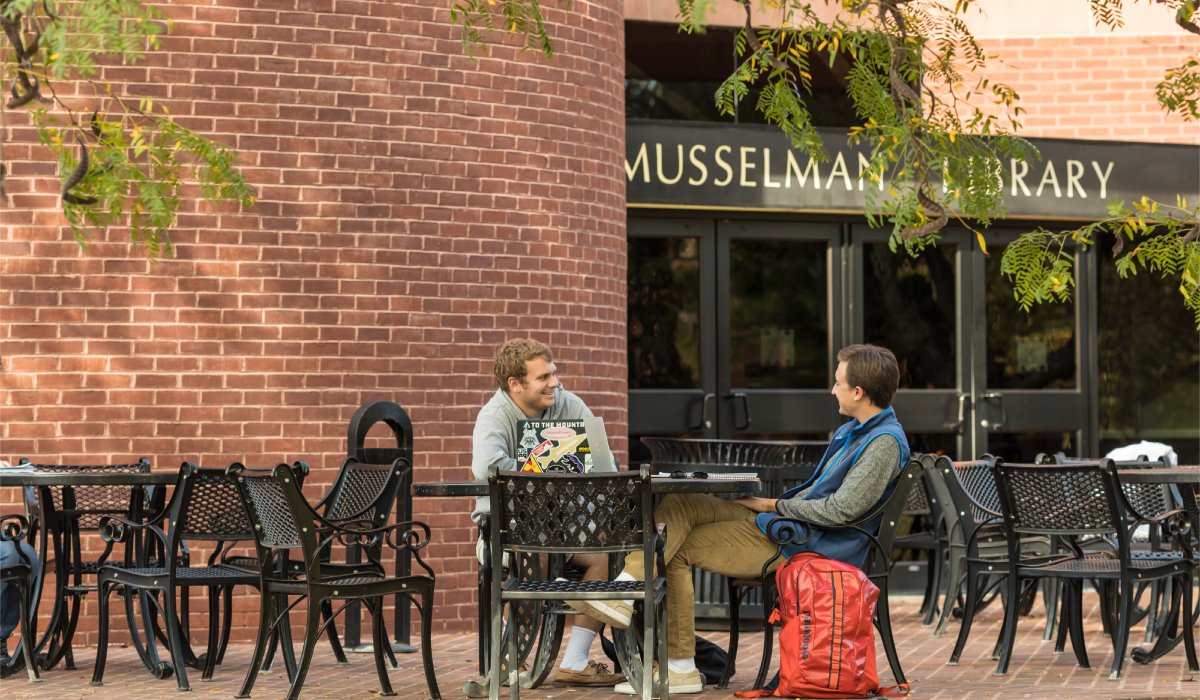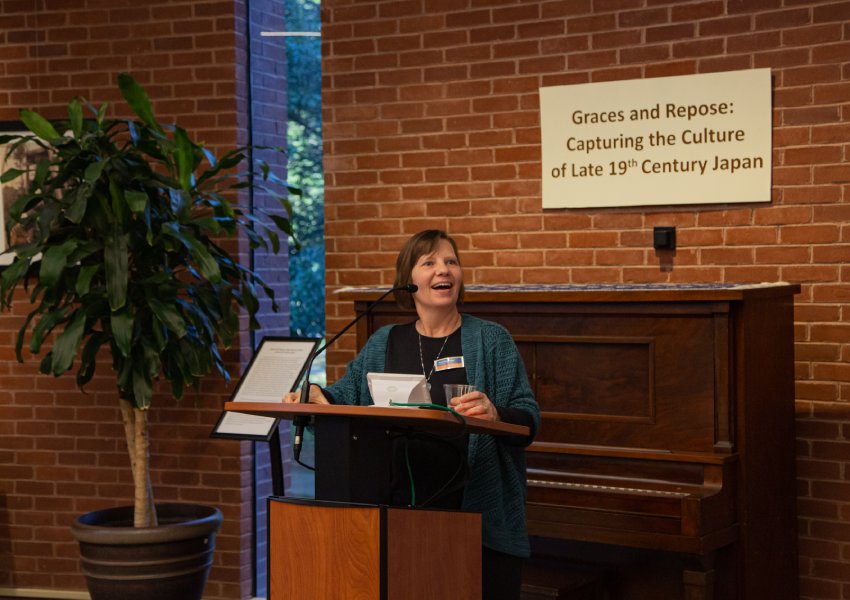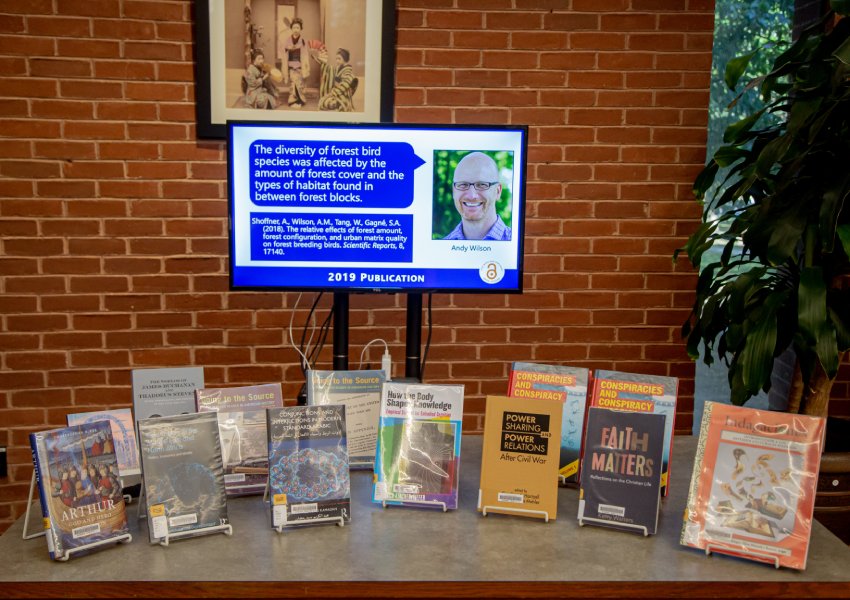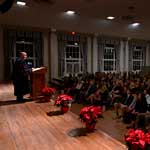

From 1834, when the Gettysburg College Board of Trustees allotted $500 toward creating the College’s first library, to 1981, when the construction of Musselman Library was completed, Gettysburg’s librarians and staff have remained committed to inspiring students in their academic pursuits while also actively making their education more accessible and affordable.
When Janelle Wertzberger, the assistant dean and director of scholarly communications at Musselman Library, attended a conference in 2014 as part of her membership with the Scholarly Publishing and Academic Resources Coalition (SPARC), she discovered Open Educational Resources (OER), which are accessible to students and professors free of cost. However, Wertzberger was not the first person on campus to learn about OER. Health Sciences Prof. Josef Brandauer had just started using an open textbook for his statistics class.
“OER offer an opportunity to implement inclusive strategies in the classroom that benefit all students,” said Brandauer, who is also the director of the Johnson Center for Creative Teaching and Learning (JCCTL). “We cannot be ‘excellent’ instructors without welcoming all students into our learning environments.”

Upon returning to campus, Wertzberger teamed up with Brandauer to introduce OER to the rest of the faculty and staff at Gettysburg College. In the following eight years, more than 80 instructors on campus have adopted open textbooks for their courses, impacting more than 5,000 students. This fall semester, OER reached a monumental milestone—students have saved a cumulative amount of $1 million on textbooks with professors switching to open textbooks.
The effects of these efforts appear in more than just numbers. History major Theodore Szpakowski ’25 worked with Musselman Library last year as one of the Holley interns. After seeing how impactful OER were for students, Szpakowski went on to create a presentation with Wertzberger covering student advocacy for OER.
“Professors can adapt OER to their classes, which provides a much more cohesive experience than reading a few chapters in several textbooks or reading out of order,” Szpakowski said. “They also allow students to save money and create a more equitable experience.”
Wertzberger was also recognized as an Affordable Learning Champion by Affordable Learning Pennsylvania, a community of higher education partners who strive to advance educational affordability. Management Prof. Alice Brawley Newlin and Prof. Marta Maras have also received this honor for their dedication toward an affordable education. Together, Newlin and Maras remixed an open textbook to replace a $300 textbook for a statistical methods course.

Musselman Library also supports academic endeavors through their open access institutional repository, The Cupola. The Cupola offers free access to scholarly and creative works by professors and students at Gettysburg College, which can be searched directly on the website or any online search engines. By tracking these works, Musselman Library celebrates the academic pursuits and achievements of those on campus and makes these achievements more accessible to others around the globe. Open access materials like those in The Cupola are cited far more frequently than works hidden behind a paywall, so they will have a great impact in future works as well. On Sept. 23, 2022, Ovation, formerly known as the College Authors Reception, celebrated and recognized the authors among the faculty and staff who published in 2019, 2020, and 2021.
Wertzberger and Musselman Library will proudly continue to work toward more affordable resources for Gettysburg students. “Affordable resources have made a huge difference to the academic success and sense of belonging for hundreds of Gettysburg students,” she said. “The library engages in this work on the behalf of our students.”
Learn more about Musselman Library’s affordable resources.
By Helen O’Neill ’23
Photos by Shawna Sherrell and Thia Anyaoku ’23
Posted: 10/17/22


